Safe Vehicles
Ensuring the safety and roadworthiness of vehicles in Jersey is essential for reducing collisions and their severity as part of the broader Safe System Approach. By maintaining high standards for vehicle safety, we contribute to creating safer roads for all users, including drivers, passengers, pedestrians, and cyclists. As vehicle technology continues to advance, our standards and regulations must evolve to protect all road users effectively.
On this page, you will find information about Euro NCAP ratings, practical tips for maintaining vehicle safety, an insightful timeline of vehicle safety features, and examples of the results of modern vehicle safety innovations.

Euro NCAP Ratings
Euro NCAP (European New Car Assessment Programme) ratings are a vital measure of vehicle safety, providing consumers with clear, independent evaluations of how well cars protect occupants and other road users. Vehicles are rigorously tested in areas such as crash protection, child safety, pedestrian impact, and advanced safety technologies like automatic emergency braking. The star rating system, ranging from 1 to 5 stars, offers a quick and reliable way to compare safety standards across different models.
By choosing vehicles with higher Euro NCAP ratings, drivers and passengers can significantly reduce the risk of injury or death in the event of a collision, while encouraging manufacturers to prioritise safety in vehicle design.
Hover over the Euro NCAP rating example below to learn more.
Click below to find out your vehicle’s Euro NCAP rating.
Maintaining Vehicle Safety
Maintaining a high level of vehicle safety is essential for keeping Jersey’s roads secure and pleasant for all users. By following best practices listed below, you can help prevent collisions as well as reduce the risk of injury if they do occur.
- Regular Services: Have your vehicle serviced according to the manufacturer’s recommended schedule to ensure that trained professionals can detect and address hidden issues early on. These expert assessments often reveal problems that may go unnoticed, helping to prevent breakdowns, maintain peak efficiency, and enhance overall safety on Jersey’s roads.
- Check Tyres Frequently: Maintain the correct tyre pressure, ensure sufficient tread depth, and look for any signs of damage or uneven wear. The legal minimum tyre tread depth is 1.6 mm. If you’re unsure how to check your tyre tread depth, please click here.
- Ensure All Lights and Signals Are Functional: Regularly test your headlights, brake lights, indicators, and fog lights so you remain visible and can accurately communicate your intentions.
- Use Genuine Replacement Parts: When repairing or upgrading your vehicle, use parts that meet the original manufacturer’s specifications to maintain safety standards.
- Fit Approved Child Seats: Use child car seats that meet current safety standards and fit them according to the manufacturer’s instructions to ensure proper protection. For more information on child seats please click here.
The Timeline of Vehicle Safety Features
The evolution of vehicle safety features has played a pivotal role in reducing road traffic collisions and their severity. From the introduction of seat belts to the development of advanced driver-assistance systems, each innovation marks a significant step forward in protecting road users.
Understanding this timeline highlights how advancements in technology, engineering, and regulations have continuously shaped safer vehicles. This section provides an overview of key milestones in vehicle safety, demonstrating how these developments contribute to saving lives and preventing injuries on our roads today.
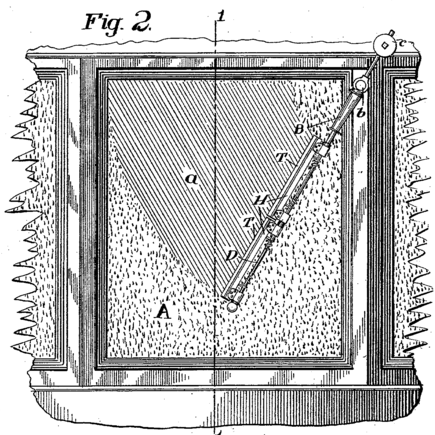
The first practical windscreen wiper is invented, greatly improving driver visibility during rain and other adverse weather conditions.

Ford begins using laminated safety glass in windscreens, reducing the risk of shattering and providing added protection for occupants.
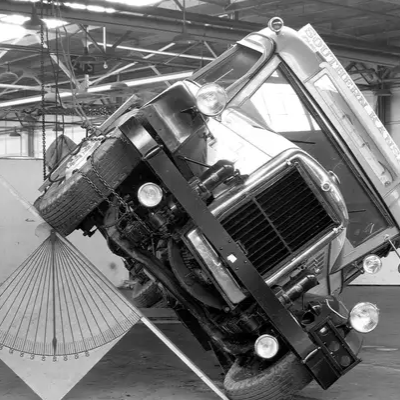
General Motors conducts the first known barrier crash test, laying the groundwork for systematic vehicle safety research and development.
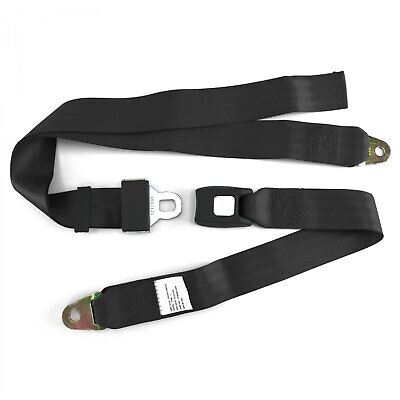
Nash becomes the first American carmaker to offer lap belts, providing a basic restraint system that helps keep occupants inside the vehicle during a collision.

Volvo introduces the three-point seat belt, a landmark safety innovation that significantly reduces injury and has saved countless lives.

Chrysler introduces one of the earliest Anti-lock Braking Systems (ABS), helping drivers maintain steering control under hard braking and slippery conditions.
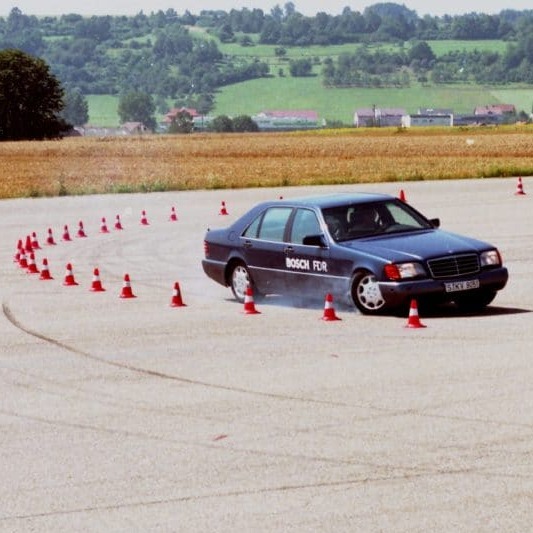
Traction control systems begin appearing in vehicles, improving stability and preventing wheels from spinning on slippery roads.
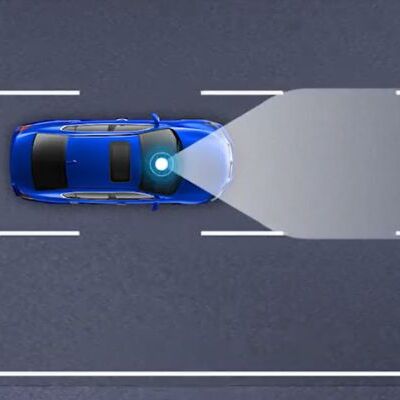
Lane Departure Warning systems alert drivers when drifting out of a lane, helping prevent collisions caused by inattentive driving.
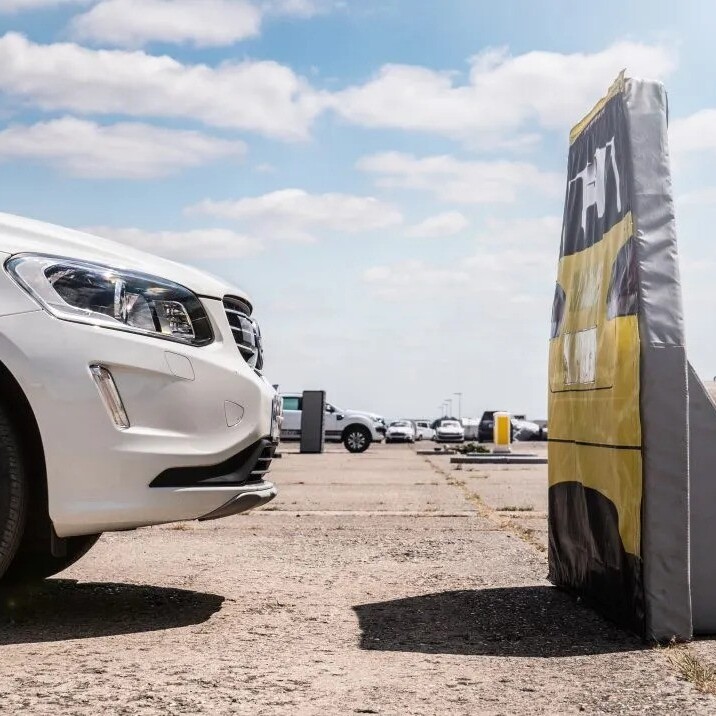
Volvo’s AEB system automatically applies the brakes if a collision is imminent, helping prevent or lessen the impact of collisions.
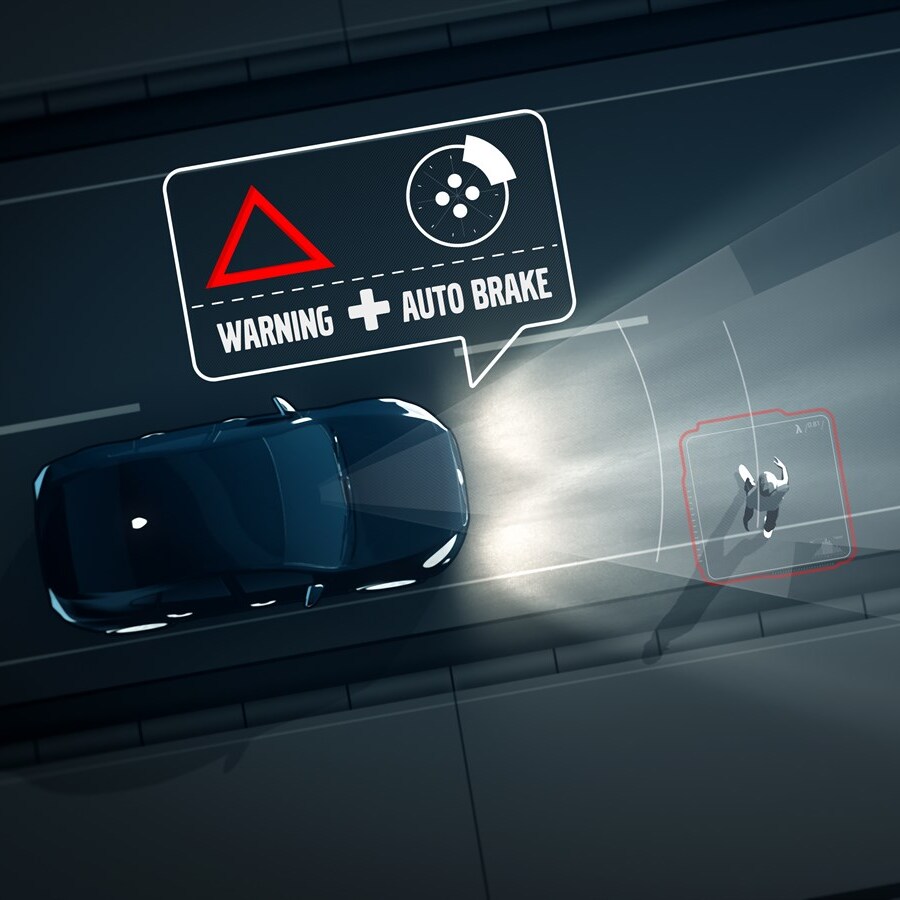
Volvo adds pedestrian detection technology, using sensors and cameras to identify people ahead and brake if the driver fails to react in time.
The Result of Modern Vehicle Safety
The image below illustrate the impact of a collision between a 2009 Chevrolet (left) and a 1959 Chevrolet (right). Together, they vividly demonstrate the significant advancements in vehicle safety over the decades.
As shown, the modern 2009 Chevrolet is far better equipped to absorb impact and protect its occupants, underscoring the life-saving importance of modern safety features. These improvements highlight how advancements in vehicle design and technology have transformed vehicle safety, reducing injuries and saving lives.
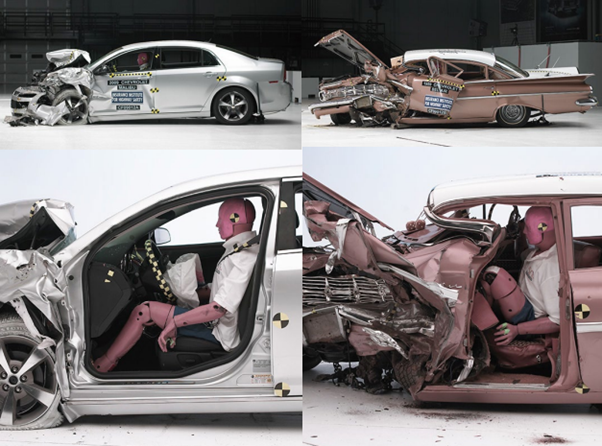
Video of the Chevrolet Crash Test: 1959 Chevrolet Bel Air vs. 2009 Chevrolet Malibu
